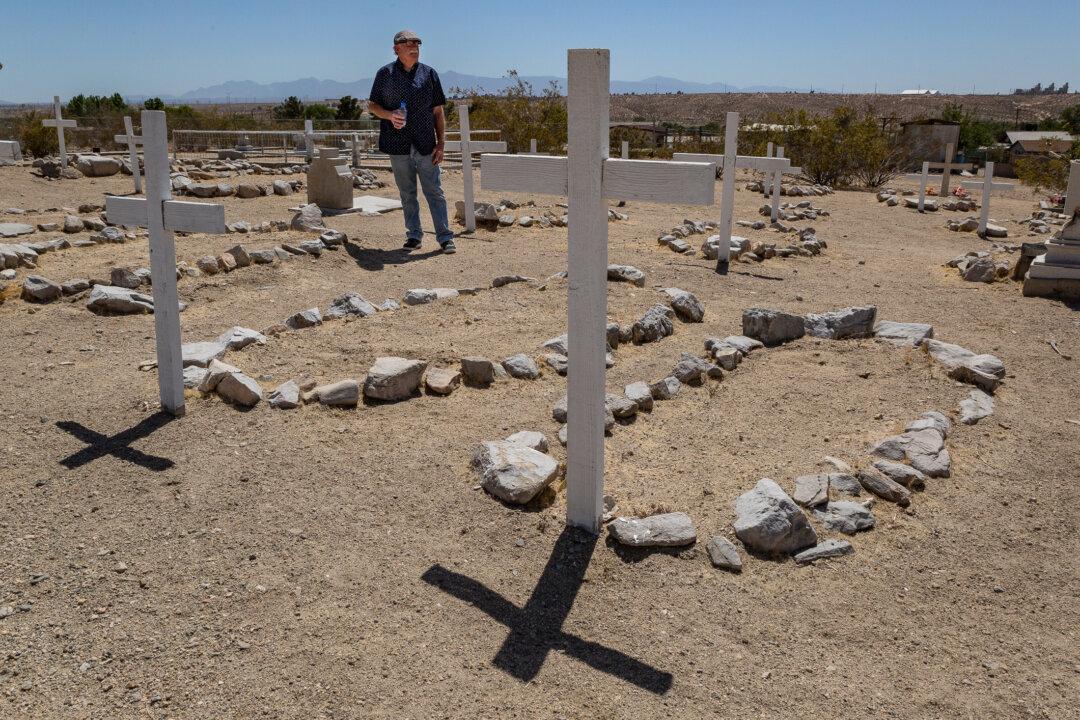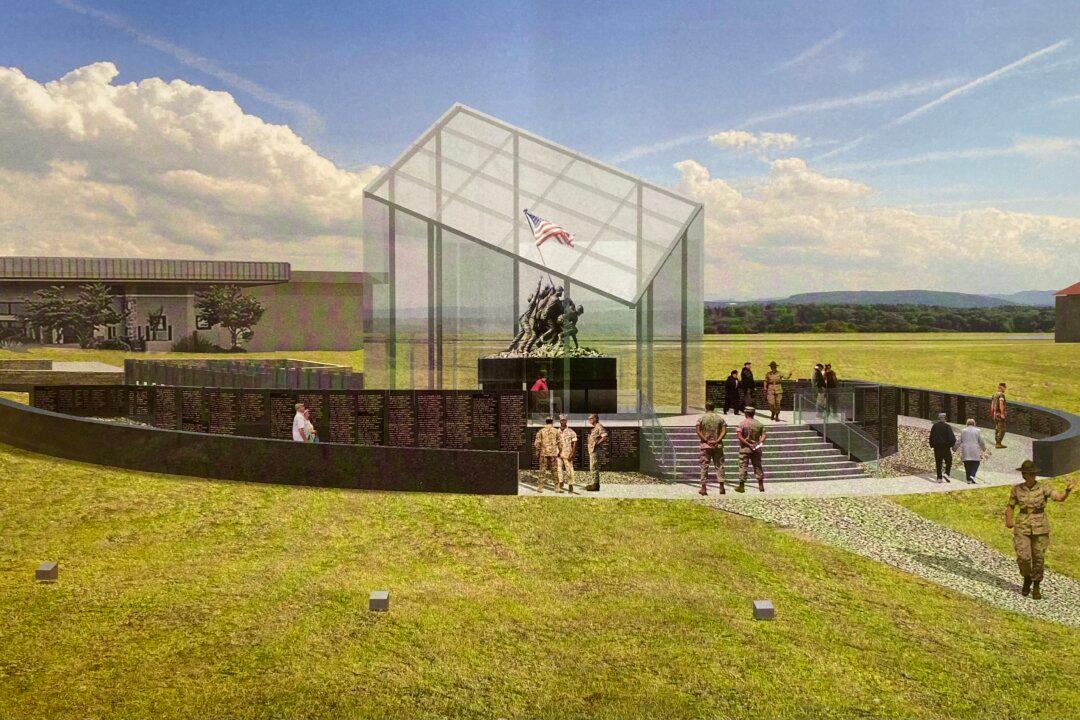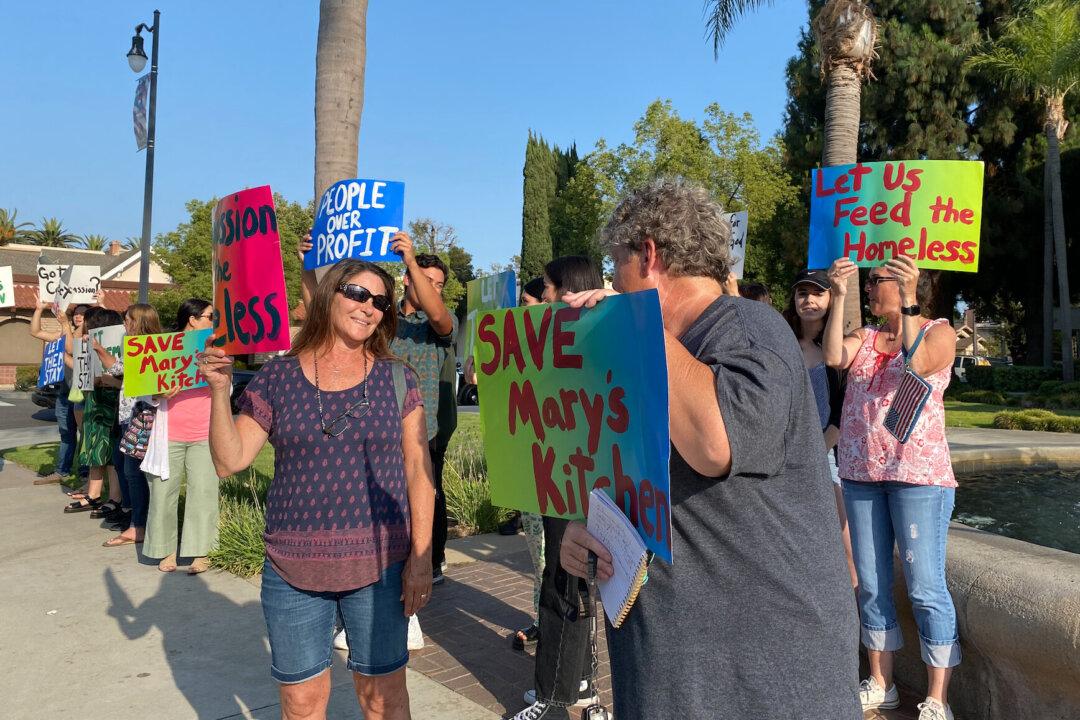ORO GRANDE, Calif.—Over the course of his 75 years, Joe Manners has seen his hometown of Oro Grande, California, population 1,861, deteriorate nearly beyond recognition.
Once upon a time, back when nearby Victorville was little more than a ranch, Oro Grande—“big gold” in Spanish—was known for its gold mines. Now the town’s primary feature is a cement factory.





